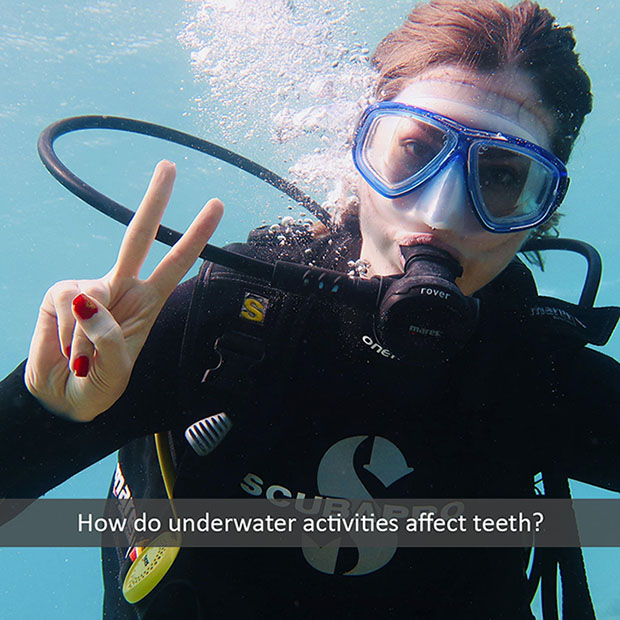How Do Swimming and Diving Affect Teeth?

“Swimmer’s calculus” sounds more like advanced mathematics than anything to do with teeth.
It’s actually the term for yellow or brown stains a swimmer can develop on their teeth after prolonged exposure to acidic chlorine ions in pool water. Tooth enamel is so vulnerable to acid that even mildly acidic pool water can increase the risk of stains.
Tooth Squeeze for Scuba Divers
For those who prefer scuba diving over swimming pools, the dental health risk is barodontalgia or “tooth squeeze.” The same way pressure builds in our ears when we dive, it can also build inside teeth, particularly any with untreated cavities or faulty dental work. If the pressure grows enough, it can even fracture the tooth. We recommend pre-diving dental visits to make sure no teeth are vulnerable.
Diving Masks: One Size Fits…None?
A common diving problem is that the so-called “one size fits all” mouthpieces don’t seem to fit anyone well, forcing divers to clench down on the mouthpiece to keep it in place. This puts a lot of strain on the jaws, potentially contributing to temporomandibular joint disorder (TMD). To anyone who dives multiple times a year, we recommend investing in a custom-fitted mouthpiece.